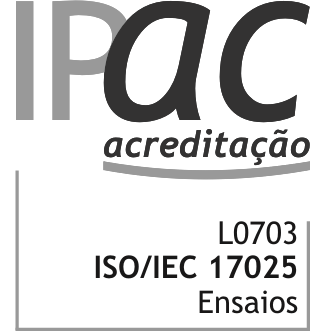Thermal Conductivity
What is it?
Thermal conductivity is a physical quantity inherent to all homogeneous materials which relates the amount of heat (Q) passing through the thickness of a material (L) over a defined area (A), resulting in a temperature gradient (ΔT), thus determining the ability of a substance to conduct heat. The thermal conductivity measurement is generally based on the analysis of the material’s thermal response to an imposed heat flux and expressed by the International System (SI) as Watt per meter-kelvin (W/mK).
What is it used for?
In production processes or end-usage stages comprising heat transfer mechanisms, knowledge of thermal properties is very important. Materials with high thermal conductivity ranks tend to conduct heat much faster and are therefore generally used as heat sinks, contrary to low thermal conductivity materials commonly associated with thermal insulation applications.
Equipment and working conditions
The laboratory’s main equipment for thermal conductivity tests is a TPS2500 from Hot Disk, allowing the evaluation of thermal conductivity and diffusivity by the Transient Source Plane (TPS) method and enabling tests to be performed according to ISO 22007-2 (2008): Plastics - Determination of thermal conductivity and thermal diffusivity - Part 2: Transient plane heat source (hot disc) method.
This equipment is able to measure thermal conductivity over a wide range from 0.005 – 1800 W/mK and capable of testing different types of materials, including ceramics, polymers, metals and composites, in the form of solids, liquids, pastes or powders. In addition to the possibility of being able to test small sized samples, this equipment also allows the determination of specific heat (Cp) in solids and liquids, as well as anisotropy assessment and thin-film/coating thermal evaluation (sample thicknesses lower than 500μm).
The laboratory also owns other complementary equipment dedicated to thermal conductivity testing such as an Isomet 2104 with contact and needle sensors and a measuring range between 0.015 and 6 W/mK, and a proprietary tool developed for the evaluation of vacuum insulation panels (VIP).
Example of use
- Evaluation of the thermal insulation efficiency of construction materials (aerogels, foams, fibers, etc.)
- Thermal property characterisation of different materials and products including ceramics, polymers, metal alloys and composites










